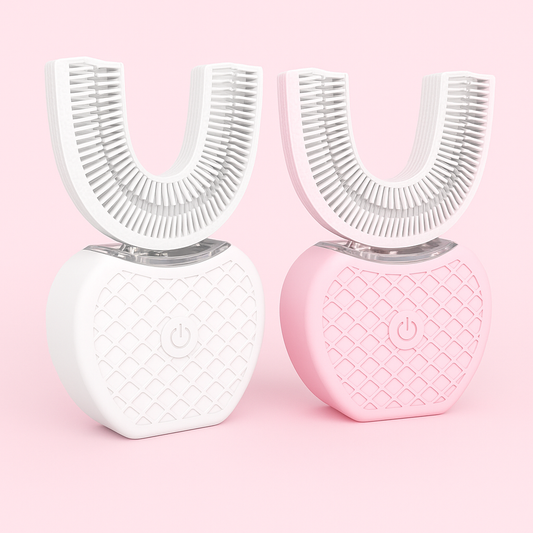Introduction
Maintaining fresh breath for your beloved canine companion is essential for their overall health and your enjoyment during playtime and cuddles. Bad breath, or halitosis, can indicate underlying health issues, including dental disease, gastrointestinal problems, or even diabetes. In 2025, numerous effective solutions can tackle bad breath in dogs naturally. This article explores ten methods to ensure your dog’s breath stays fresh and pleasant, along with insights on maintaining their overall oral hygiene.
1. Regular Veterinary Dental Check-ups
One of the most effective ways to combat bad breath is through regular veterinary dental check-ups. A professional cleaning can remove tartar and plaque buildup that contributes to foul odors. Here’s why these check-ups are vital:
- Preventative care: Regular visits to the vet can identify dental issues early before they develop into serious problems.
- Professional cleaning: Veterinary professionals have the tools and expertise to perform thorough cleanings that go beyond what you can do at home.
- Health monitoring: Your vet can assess your dog’s overall health and detect any other underlying issues that could be causing bad breath.
Make it a priority to schedule dental check-ups at least once a year, or more frequently if your dog is prone to dental issues.
2. Daily Brushing
Just like humans, dogs benefit from daily brushing. Establishing a routine can significantly improve your dog’s oral health. Here are some tips to make brushing easier:
- Start slowly: Introduce brushing gradually. Allow your dog to get used to the toothbrush and toothpaste by letting them sniff and taste it first.
- Choose the right tools: Use a toothbrush and toothpaste specifically designed for dogs. Human toothpaste can be harmful to dogs.
- Be consistent: Aim for two to three times a week, if not daily, for optimal results. Set a schedule that fits your routine.
Remember, the more consistent you are, the more your dog will adapt to the process, making it easier for both of you.
3. High-Quality Dental Chews
Investing in high-quality dental chews can reduce plaque and freshen breath. These treats not only satisfy your dog’s chewing instinct but also provide dental benefits. When choosing dental chews, look for:
- Veterinary endorsement: Seek products that have been endorsed by veterinary dental associations for their effectiveness.
- Natural ingredients: Opt for chews made from natural ingredients without artificial additives or preservatives.
- Specific designs: Choose chews designed to promote oral health, such as those with textures that help scrub teeth clean.
Popular options include dental bones, rawhide alternatives, and specially formulated dental sticks. Make sure to supervise your dog while they enjoy these treats to prevent choking hazards.
4. Water Additives
Water additives are an easy and effective way to promote oral hygiene. They can help reduce bacteria and plaque in your dog's mouth without the need for brushing. When considering water additives, ensure you choose:
- Proven efficacy: Look for products that have clinical studies backing their effectiveness in improving oral health.
- Natural ingredients: Select additives made from safe, natural ingredients that won't harm your dog.
- Veterinarian recommendations: Always consult your vet for recommendations on the best water additives for your pet.
Regular use of water additives can supplement your dog's dental care routine, making it more comprehensive and effective in combating bad breath.
5. Crunchy Fruits and Vegetables
Incorporating crunchy fruits and vegetables into your dog’s diet can help clean their teeth and freshen their breath naturally. These foods act as natural toothbrushes and provide essential nutrients. Some great options include:
- Carrots: High in fiber and low in calories, carrots can help scrape off plaque while your dog chews.
- Apples: Sliced apples (without seeds) can freshen breath and provide vitamins A and C.
- Celery: This crunchy vegetable can help clean teeth and has a refreshing taste that dogs often enjoy.
Always ensure that any fruits or vegetables you offer are safe for dogs and cut into appropriate sizes to avoid choking hazards. Consult your veterinarian if you're unsure about which foods are suitable for your pet.
6. Probiotics
Probiotics can improve your dog’s digestive health, which can indirectly contribute to fresher breath. A healthy gut can lead to a reduction in bad breath caused by digestive issues. When looking for probiotics, consider:
- Dog-specific formulations: Choose probiotics specifically designed for dogs, as these contain strains that are beneficial for canine health.
- Quality and safety: Ensure that the product has been tested for safety and efficacy.
- Consulting your vet: Always consult with your veterinarian before introducing any new supplements into your dog’s diet.
Probiotics can help balance the gut microbiome, leading to improved digestion and fresher breath.
7. Homemade Dental Solutions
Creating homemade dental solutions can also be an effective way to ensure fresh breath. Here are some simple recipes you can try:
- Baking soda paste: Mix a small amount of baking soda with water to create a paste. Apply it to your dog's teeth using a soft cloth or toothbrush.
- Coconut oil rub: Coconut oil has natural antibacterial properties. You can rub a small amount on your dog’s teeth and gums to help reduce bacteria.
- Herbal mouthwash: Brew chamomile tea, cool it down, and use it as a mouthwash for your dog by soaking a cloth and rubbing it on their teeth.
When making homemade solutions, always ensure the ingredients are safe for your dog and avoid anything toxic. It’s best to consult with your vet before trying any new remedies.
8. Chewing Toys
Providing your dog with durable chewing toys can help naturally clean their teeth. Look for:
- Rubber toys: Durable rubber toys can withstand vigorous chewing while helping to clean teeth and gums.
- Textured toys: Select toys with various textures designed to promote dental health by scrubbing away plaque as your dog chews.
- Interactive toys: Engage your dog with toys that dispense treats, encouraging chewing and mental stimulation.
Regular chewing not only helps maintain oral hygiene but also keeps your dog entertained and mentally stimulated.
9. Regular Exercise
Regular exercise can promote overall health, including oral hygiene. Keeping your dog active can help maintain their weight and reduce the risk of dental issues. Here are some ways to incorporate exercise into your dog's routine:
- Daily walks: Aim for at least 30 minutes of walking each day to keep your dog fit and healthy.
- Playtime: Engage in interactive play with toys that encourage your dog to run, jump, and fetch.
- Dog parks: Bring your dog to local dog parks where they can socialize and exercise with other dogs.
Regular exercise not only supports dental health but also enhances your dog’s overall well-being.
10. Monitor Their Diet
Lastly, monitor your dog's diet closely. A balanced diet rich in nutrients can significantly impact their oral health. Avoid foods high in sugar and opt for high-quality dog food. Here are some dietary tips:
- High-quality dog food: Choose premium dog food that lists meat as the primary ingredient and is free from fillers.
- Limit table scraps: Avoid feeding your dog human food that can contribute to bad breath.
- Hydration: Ensure your dog has access to fresh water at all times, as proper hydration is essential for overall health.
Consult with your veterinarian about the best diet for your dog’s specific needs, considering their age, breed, and health condition.
Conclusion
Maintaining fresh breath for your dog in 2025 is achievable with these effective solutions. Regular dental care, combined with a proper diet and products, can lead to a happier, healthier pet. Prioritize your dog’s oral hygiene to enjoy those close moments without unpleasant odors! Remember, a proactive approach to dental care not only enhances your dog’s breath but also contributes significantly to their overall health and well-being. By implementing these strategies, you can ensure that your furry friend not only has fresh breath but also enjoys a long, healthy life filled with love and companionship.
Don’t hesitate to reach out to your veterinarian for personalized advice and recommendations tailored to your dog’s specific needs. Together, you can create a comprehensive oral care plan that will keep your dog’s breath fresh and their smiles bright!


